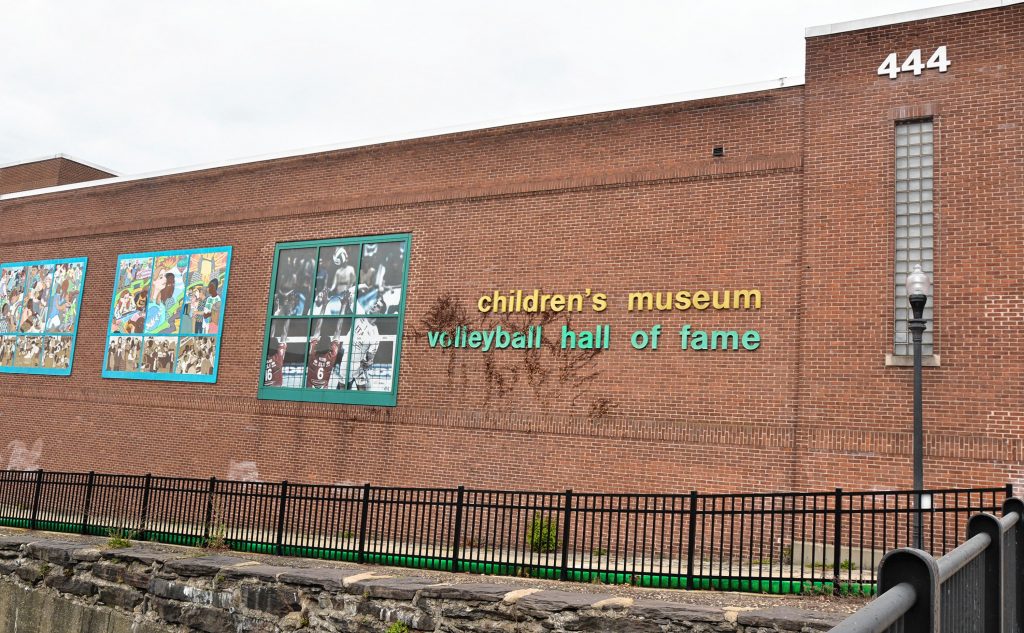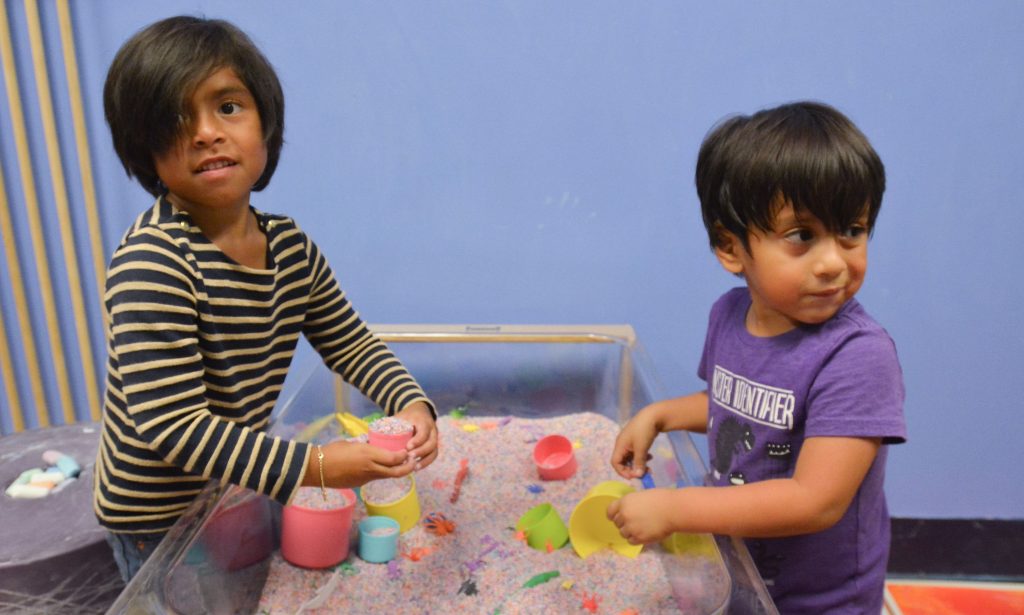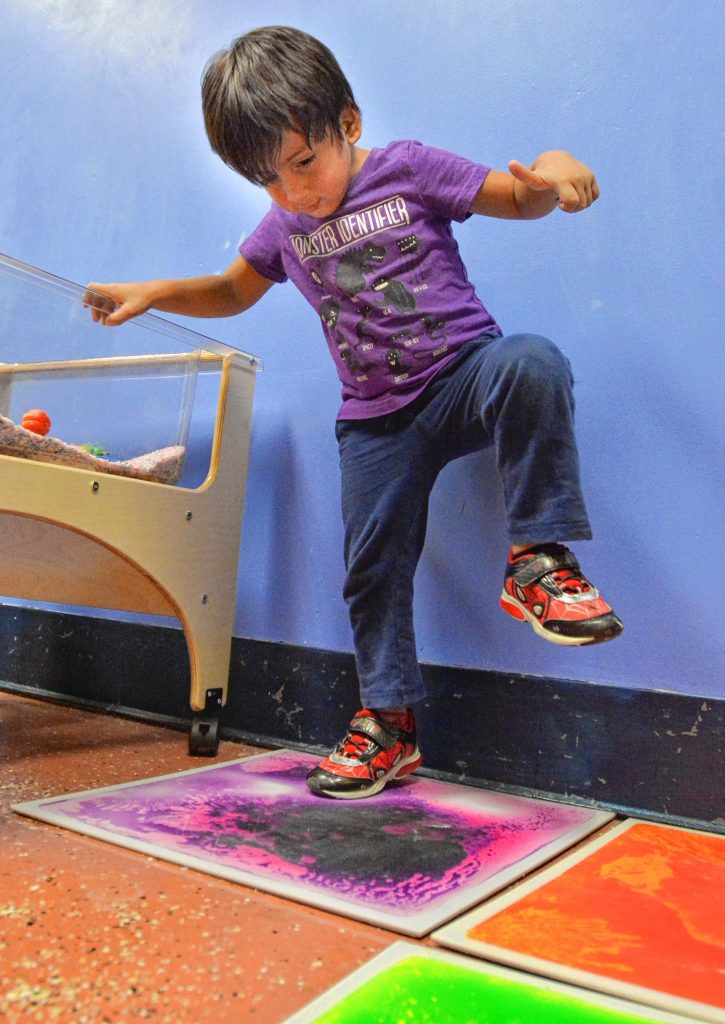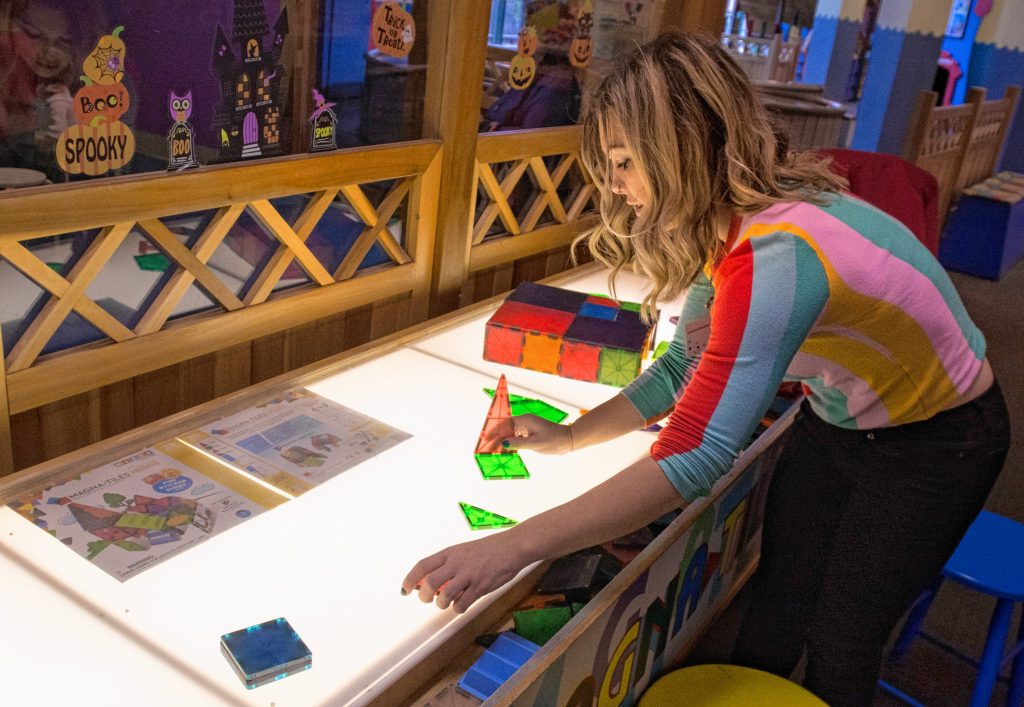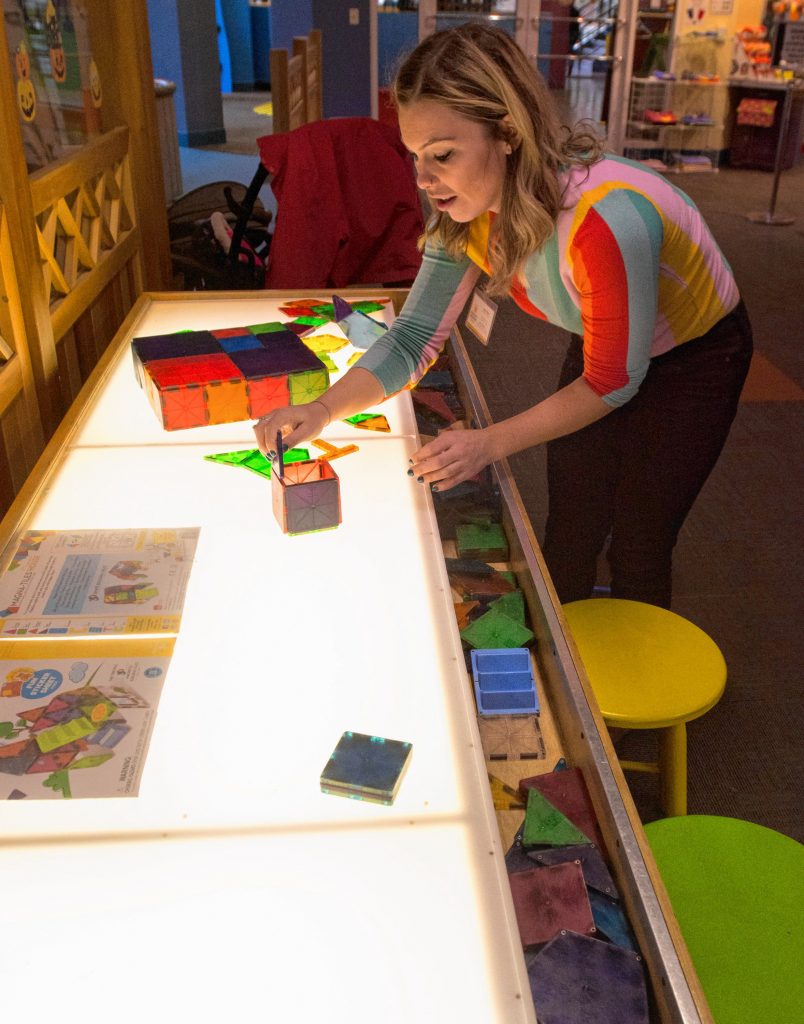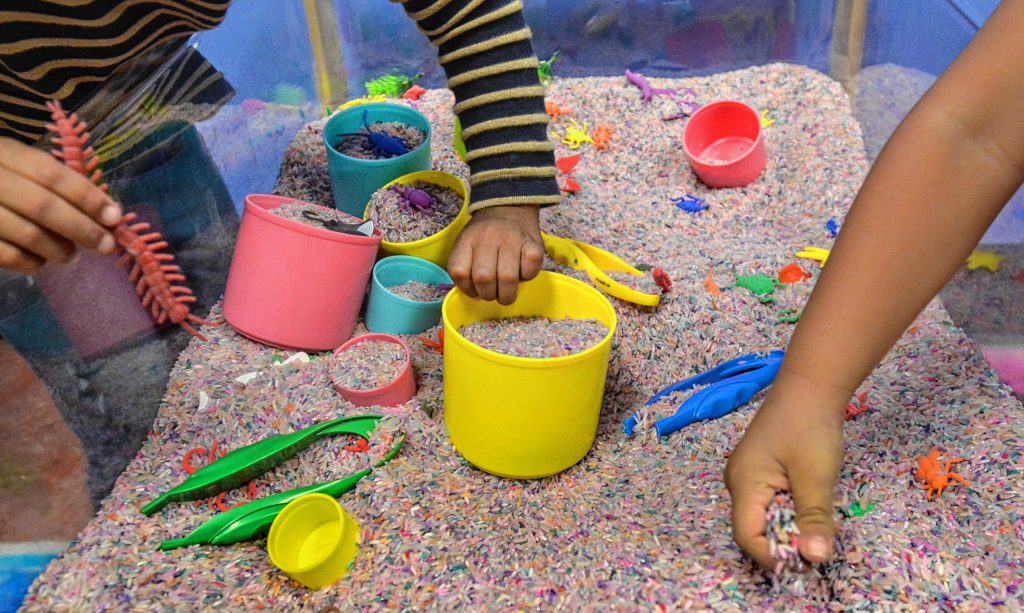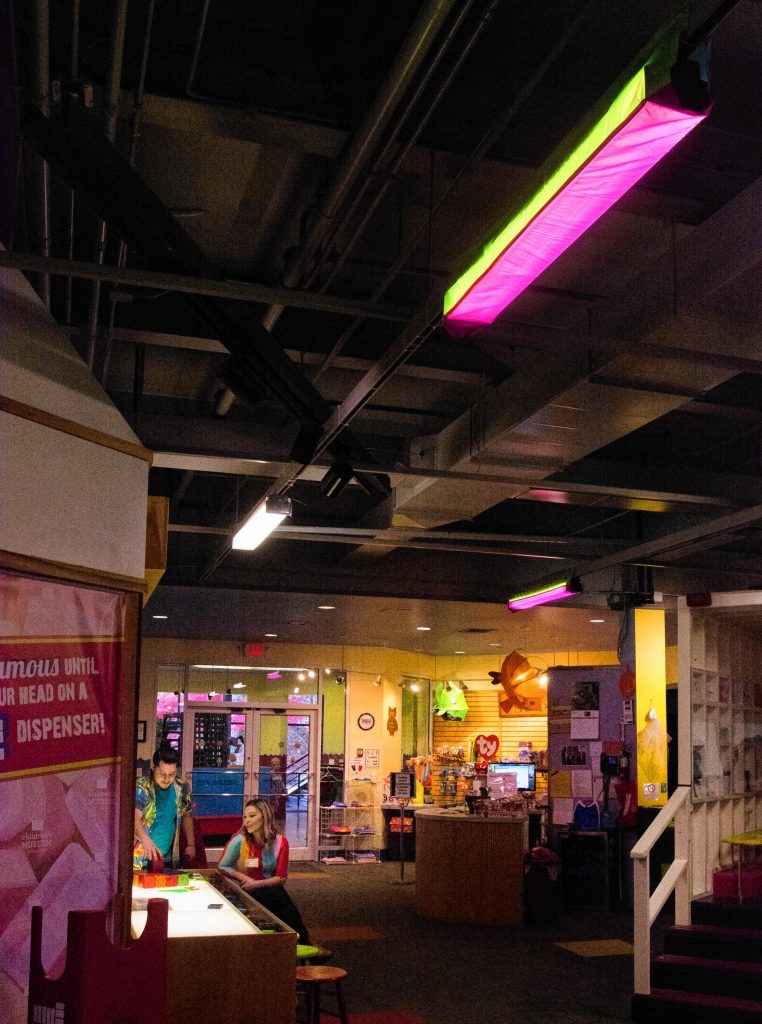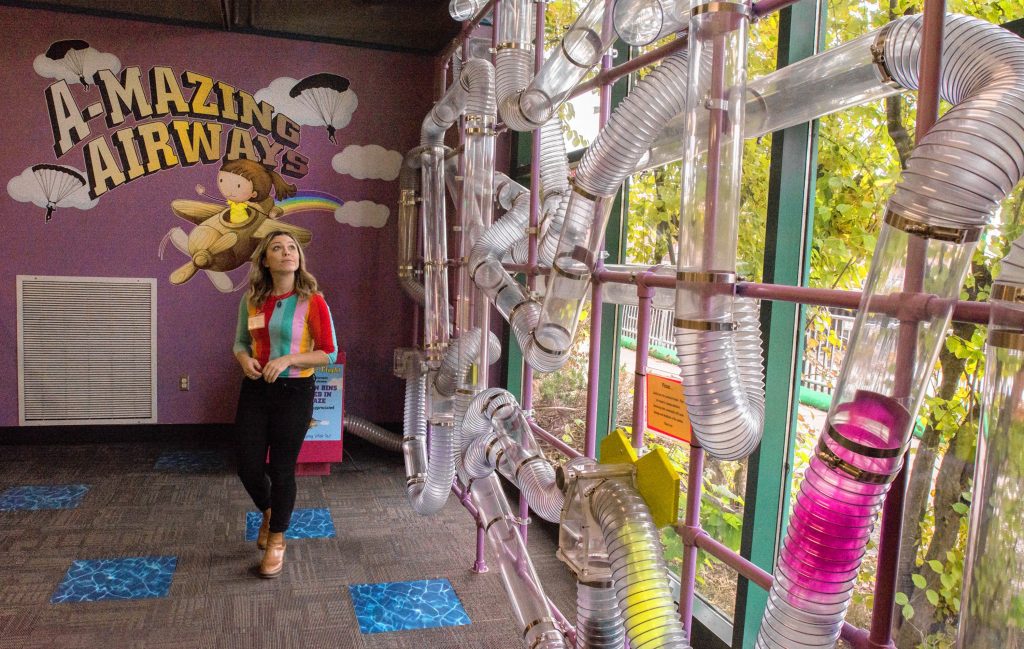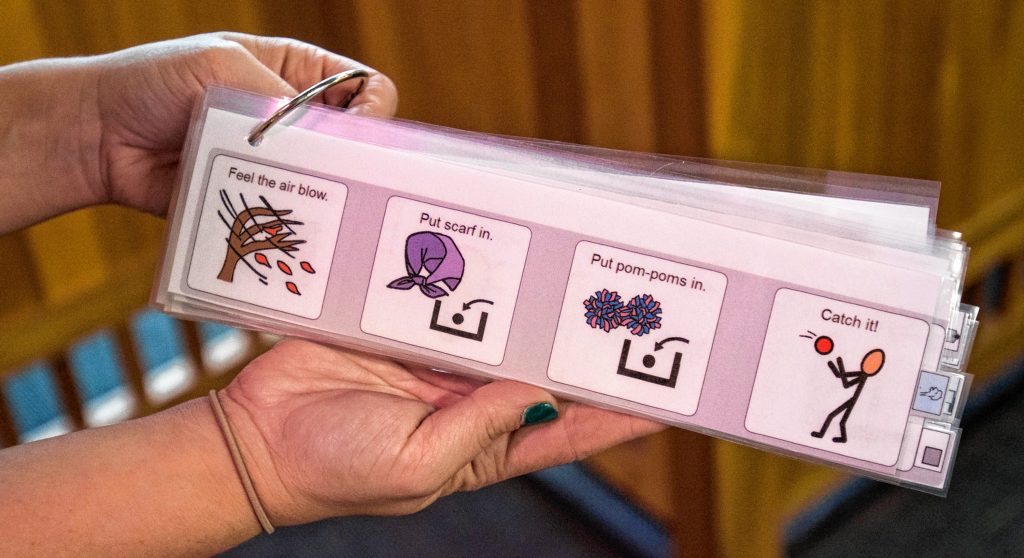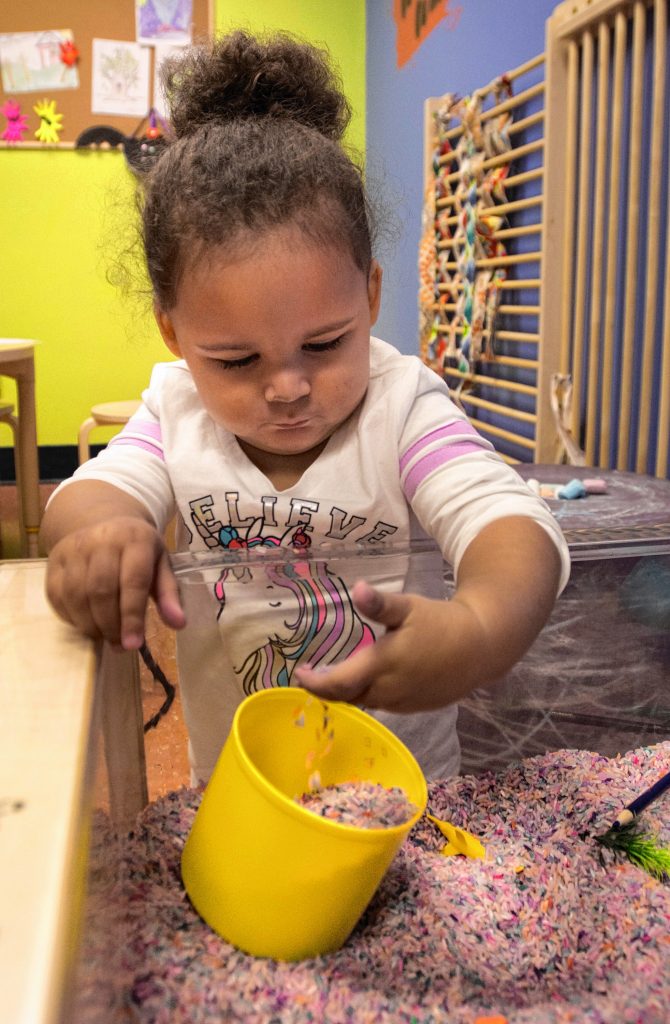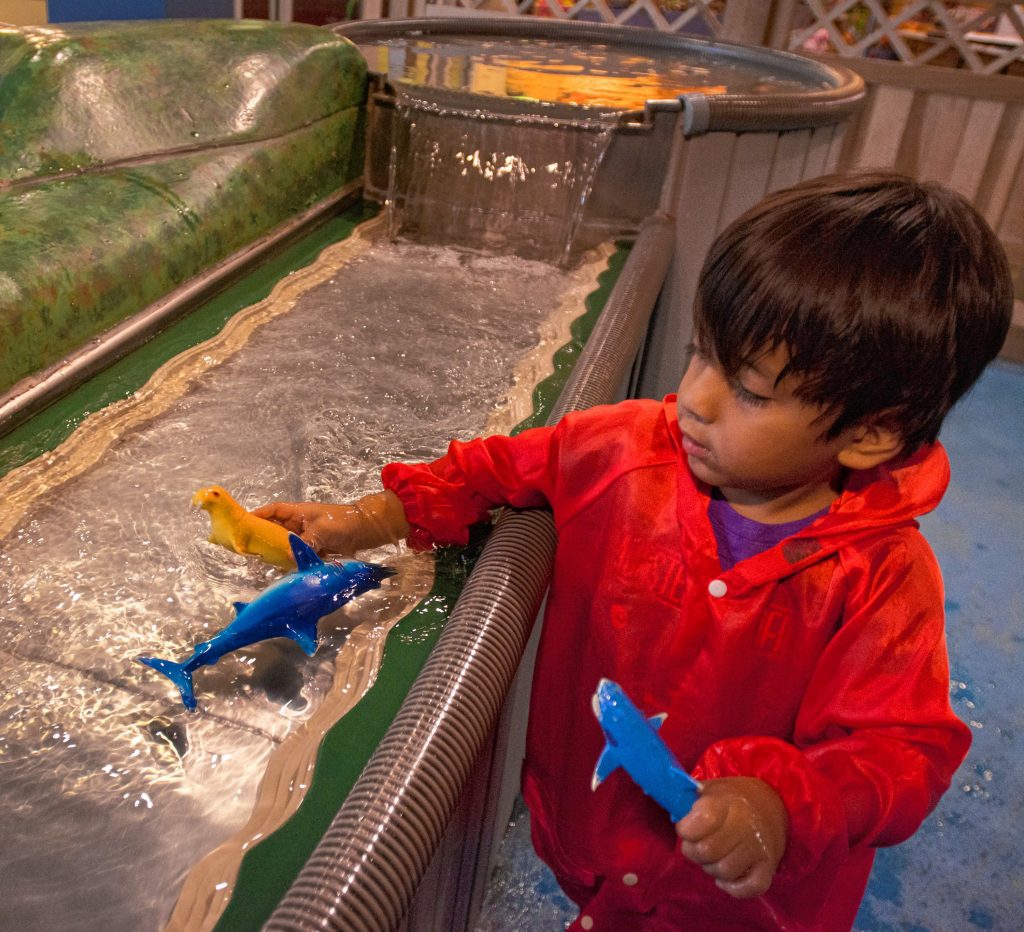On a typical day at the Holyoke Children’s Museum, there is a hustle and bustle as small children run around role-playing as police officers and firefighters, flashing lights from a replica ambulance and occasional dings coming from a small room with percussive instruments.
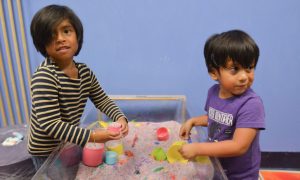
Esther Tibbitt, 5, and Ray Tibbitt, 4, play on a sensory table recently at Holyoke Children’s Museum. Though these children are not autistic and do not have sensory processing disorders, the activity is popular and suitable for those who do and is offered during the museum’s Sensory Sundays. Jerrey Roberts photo
For families with a child who has a sensory processing disorder or is on the autism spectrum, spending a day somewhere with lots of commotion might seem overwhelming. To create a more inclusive environment, the operations manager at the museum, Lauren Boyce, launched “sensory Sundays” last month which will offer a more calming environment for sensory-sensitive children once a month. The next sensory Sunday is December 15, from 10 a.m. to 11:30 a.m., and will continue next year on the first Sunday of each month.
According to the STAR Institute for Sensory Processing Disorder, sensory processing disorder (SPD) is a neurophysiological condition in which sensory input either from the environment or from one’s body is poorly detected, modulated, or interpreted. Sometimes atypical body responses are observed, as well. Autism spectrum disorder is an umbrella term for a group of developmental disorders that can involve varying degrees of language and social impairments and repetitive behaviors. According to the Center for Disease Control, autism affects an estimated 1 in 59 children in the United States today.
At sensory Sundays, lights on the first floor will be dimmed with special shades. Loud sounds like the buzzard from the ambulance will be turned off. No flashing lights either. Even the hand dryer next to a water table for kids to play at will be turned off with paper towels available instead.
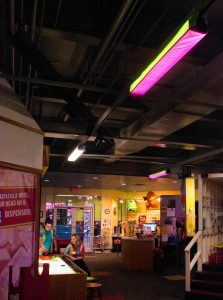
Lights are covered for Sensory Sundays at Holyoke Children’s Museum for those children who have trouble tolerating bright lights. Jerrey Roberts photo
“We wanted to have a quieter, dimmer, less stimulating atmosphere down here for kids because bright lights might be an issue or heavy sound or those kinds of things,” Boyce said. “We really wanted to make it a more calming experience for them.”
Additionally, the second floor of the museum will be dedicated to “sensory-seekers” where children will be able to navigate through a specially designed obstacle course with Chris Gibaldi and Hope Ross of Learn in Motion, a Holyoke-based organization that combines physical and educational activities. Learn in Motion have movement- and play-based programming in and out of schools.
“We are engaging with all the kids who come in and engaging each at their level,” Hope Ross, an instructor with Learn in Motion, said. “Some are little more timid or hesitant and we meet children where they are at and give them the best experience we can.”
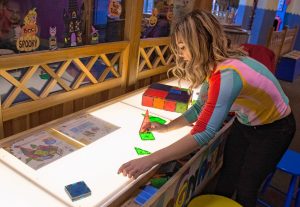
Lauren Boyce, who is the operations manager at Holyoke Children’s Museum, describes the use of a Magna Tile Table at the museum. It is one of the activities offered by the museum’s sensory Sundays. Jerrey Roberts photo
Ross said that children can learn “academic, social-emotional or life skills can be learned through play.”
Children with SPD or autism can have difficulty sitting at a table due to higher levels of energy and decreased attention spans, but through play, they can have an outlet to potentially help with maintaining their attention and socializing with peers.
“Giving them the opportunity to move their body in an occupational therapist directed way, in theory, will help them actually learn better,” Boyce said.
There is also a social component for families with SPD or autistic children who struggle to find places where they can play for fear of overstimulation or the presence of less than understanding parents of children with sensory processing disorders.
“As a new mom, I know the anxiety of knowing that your kids are probably going to do something because they are still learning, their brains are still developing, and having to interject yourself every 10 minutes is a lot,” Boyce said. “I want to have a community resource for these families to come and if kids accidentally bump heads, it’s OK.”
Luis Fieldman can be reached at lfieldman@valleyadvocate.com

